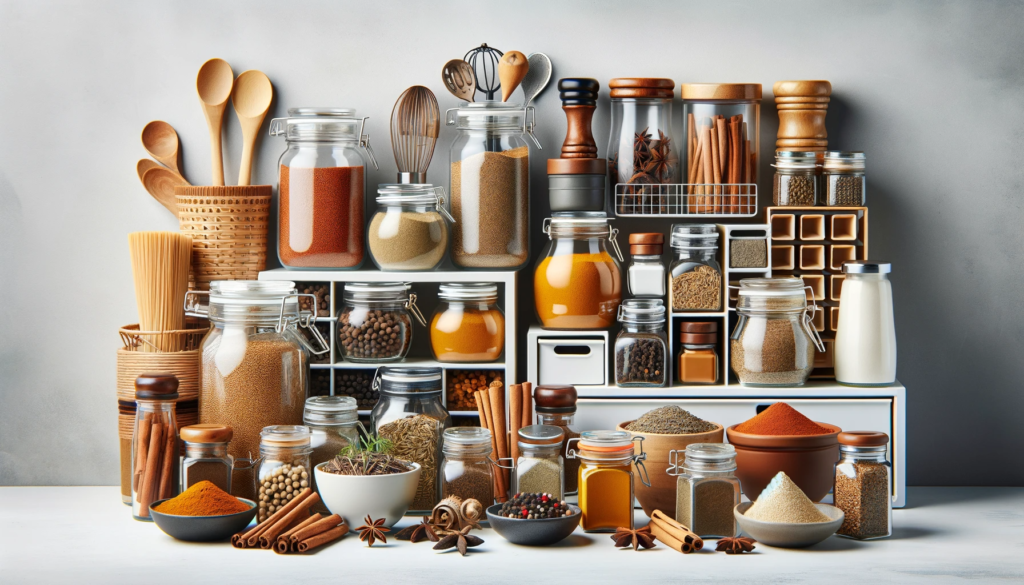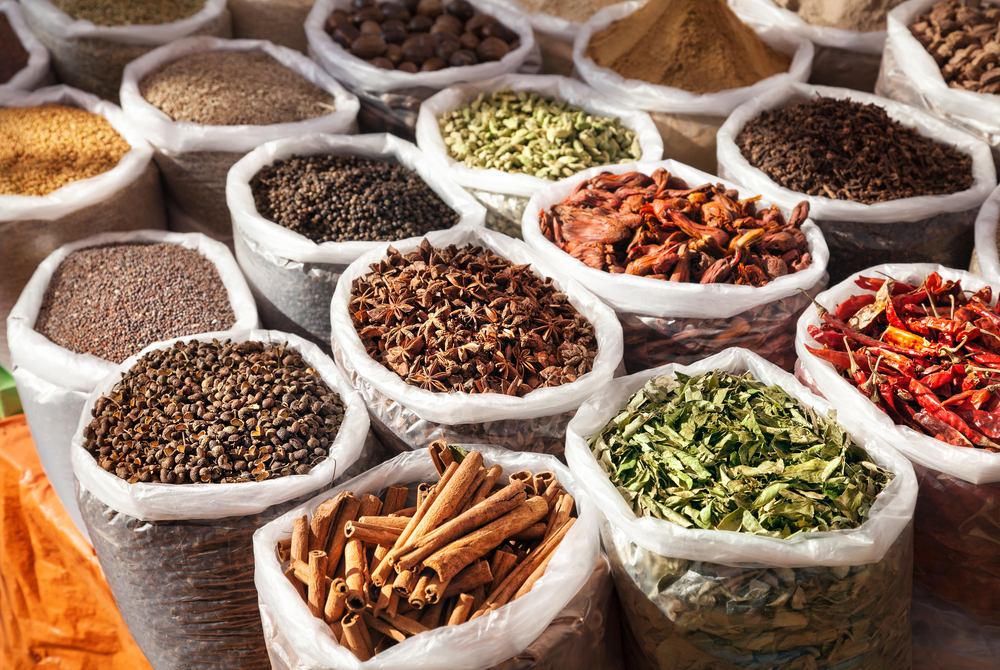The Ultimate Guide to Storing and Preserving African Spices
Introduction to the Importance of Proper Spice Storage
African spices add a rich, unique flavor to meals and have been treasured in kitchens around the globe for centuries. Their diversity in taste and aroma is a testament to the continent’s vast cultural heritage. This guide will delve into the intricacies of storing and preserving African spices, ensuring that every pinch retains its potent flavors and therapeutic qualities. It’s not just about prolonging their shelf life—it’s also about honoring the tradition and craft behind these culinary treasures.
Why Proper Storage is Key for Maintaining Spice Quality
The vibrant flavors in African spices are due to the essential oils and chemical compounds they contain, which are susceptible to degradation if not stored properly. Exposure to heat, moisture, light, and air can all diminish the quality and potency of spices, detracting from their flavor profile and efficacy in cooking. By understanding and implementing correct storage techniques, the rich taste and health benefits of spices like berbere, ras el hanout, and uda can be preserved.

Understanding the Shelf Life of African Spices
General Shelf Life of Common African Spices
African spices each come with an inherent shelf life that can be used to gauge their longevity in your pantry. Whole spices can maintain their quality for up to three years, while ground spices are best used within a year of purchase. However, the shelf life can vary greatly depending on the spice’s botanical nature and storage conditions. This section cuts through the ambiguity and sets out a general shelf life guideline for your most cherished African spices.
Factors Affecting Spice Potency Over Time
The journey from a fresh, vibrant spice to a barely recognizable powder isn’t sudden. It’s a gradual process influenced by various factors. Even before reaching your kitchen, the handling and storage from sourcing, processing, and transporting can impact a spice’s quality. Once in your possession, how you manage elements like temperature, light, humidity, and air exposure makes the difference between a flavor-packed or a flavor-lacked spice.
Best Practices for Storing African Spices
Ideal Conditions for Spice Storage
African spices fare best when stored in a cool, dark, and dry place. Cupboards away from the stove, oven, or any heat-generating appliances are ideal. Storing spices in such an area can remarkably extend their shelf life and maintain their essence. This section goes beyond the basics to offer a comprehensive overview of the ideal conditions that will keep your spices at their peak for as long as possible.
Tips for Organizing Spices for Freshness and Accessibility
Organizing your spice collection is both an art and a science. It’s not only about making it easier to find what you need when you need it, but also about preserving the quality of your spices. In this part, you will learn the tips and tricks for managing your spice inventory efficiently—from labeling systems to inventory rotation—ensuring your spices remain as fresh as the day they were ground.

Techniques for Extending the Life of Spices
When to Use Whole vs. Ground Spices
The decision to opt for whole spices instead of ground ones could significantly enhance the longevity of your African spice collection. Whole spices preserve their flavors longer due to less surface area being exposed to degrading elements. We’ll delve into the scenarios where whole spices triumph over their ground counterparts, and vice versa, giving your culinary creations the best flavor profile possible.
Methods for Reviving Older Spices
Don’t be quick to discard spices that seem to have lost their zeal. There are several techniques to coax back some of their inherent zest. This section will illuminate the ways through which you can attempt to revive older spices, from toasting to rehydrating, helping them reclaim a spot in your cooking repertoire. Learn how a little effort can bring back a taste of the spices’ former glory.
DIY Solutions for Spice Preservation
Creating Homemade Spice Blends
Mixing your own spice blends not only personalizes your dishes but also maximizes the use of your spices before they lose their potency. Combining various spices at their peak can create a synergy of flavors, adding complexity to meals. In this section, we’ll guide you through creating your own signature blends using African spices, offering advice on blending techniques and proportions for perfectly balanced mixtures.
Making Infused Oils and Pastes with African Spices
Another avenue to explore for preserving the essence of African spices is infusing them into oils and pastes. These flavorful concoctions not only extend the shelf life of the spices but also provide a concentrated burst of flavor to any dish. This segment offers a step-by-step process on how to safely and effectively create infused oils and pastes, ensuring you have a ready arsenal of intense flavors at your disposal.
The Role of Packaging in Preserving Spices
Choosing the Right Containers for Spice Storage
The container in which you store your spices can be just as important as the environmental conditions. Certain materials can offer additional protection against the factors that cause degradation. Here, we will provide insights into selecting the best storage containers types that are conducive to longevity and flavor preservation, helping you make informed decisions on where to house your precious spices.
The Benefits of Airtight and Light-Blocking Containers
Containers with airtight seals and materials that block out light provide a formidable defense against the enemies of spice vitality—air and UV rays. Utilizing these types of containers can drastically reduce the rate of spice deterioration. In this part of the guide, explore the multitude of benefits these containers offer and how they contribute to a well-preserved spice collection.
Advanced Storage Techniques
Using Refrigeration and Freezing for Long-term Storage
While not all spices react favorably to cold storage, some might benefit from the refrigeration or freezing methods. The key to success is knowing which spices are appropriate candidates and how to prepare them for such storage. This section indispensably explores the nuances of refrigerating and freezing African spices, helping to guide you to longer-lasting flavor and potency.
Vacuum Sealing and Other Preservation Methods
Beyond traditional shelving techniques, there are more modern methods of spice preservation that can keep them fresh for an extended period. Vacuum sealing, for instance, removes air from the equation, significantly slowing down oxidation processes. This segment will cover the pros and cons of vacuum sealing and other advanced methods, such as the use of oxygen absorbers, providing a thorough understanding of the high-tech options at your disposal.
FAQs on Storing and Preserving African Spices
How Long Can I Store Ground Spices?
Ground spices typically maintain their best quality for six months to a year. They have a larger surface area exposed to air, which accelerates the loss of flavor and aroma. However, proper storage in airtight and dark-colored containers in a cool environment can help preserve their qualities slightly longer.
Can I Store All My Spices in the Freezer?
While freezing can extend the life of some spices, not all spices take well to this storage method. Whole spices with low moisture content are better candidates for freezing. Ground spices may end up caking or losing flavor due to condensation. Each spice should be assessed individually before employing this method.
Does Light Affect Spice Quality?
Yes, light, particularly sunlight, can degrade spices by warming them and promoting oxidation, both of which can deteriorate essential oils and pigments responsible for flavor and color. Storing spices in dark containers in a cupboard away from direct light will help preserve their qualities.
Are Glass Jars Suitable for Storing Spices?
Glass jars can be suitable for storing spices, especially if they are amber or colored to block out light. Ensure the jars have airtight seals to keep the spices from exposure to air. Remember to store them in a dark, cool place to further protect from light and heat.
How Can I Tell if a Spice is No Longer Good?
Spices do not spoil in the same way food does, but they can lose flavor and potency over time. Check for changes in color, aroma, and flavor. If the spice appears faded, has a weak smell, or lacks taste, it’s likely past its prime and will not perform well in cooking.
